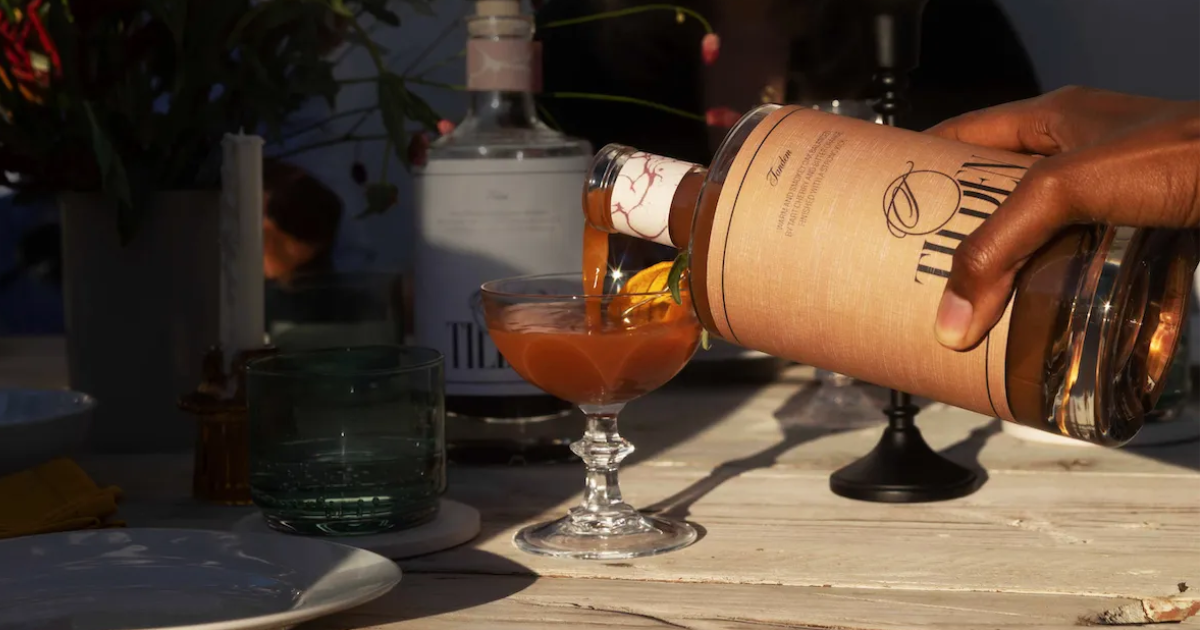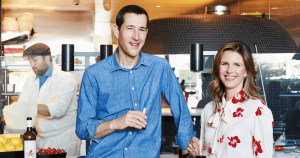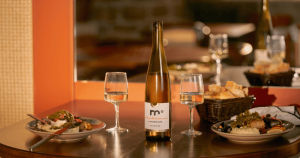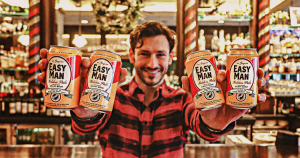By Matthias Laudico and Charlotte Mizrahi, Co-Founders of Ley Line Labs
When developing a beverage, you should keep a close eye on what’s working for other brands. Here are some overall trends in non-alc beverage formulation we’re watching.
Form and function
With the ubiquity of functional beverages nationwide, we’re starting to see some savvy brands take a closer look at what exactly they want their products to do. An evening beverage is one thing, but some people are looking for something to help with digestion on top of a good night’s rest. Energy tonics are all the rage, but energy for work and energy for parties are two very different things, with different ingredients to address them. When building a drink, think about the moment it’ll bring. The ingredients, sales channels, marketing, and vibe are shaped by the occasion. The more consumers get choosy about what their drinks can do, the more brands can serve those specific needs.
Just make it good
There are a lot of things consumers are looking for in beverage: low sugar, no preservatives, organic certifications, and so on. Sometimes, it’s worth it to just make the best tasting thing you possibly can, using the best ingredients you can reasonably get your hands on. Some excellent products (like Phony Negroni) forgo limiting sugar to delicious effect. Focusing on indulgence can hit a sweet spot for folks just craving a good time above all else.
Some of the well-known ingredient certifications are starting to lose their luster. At Ley Line Labs, we certainly get people looking to make products using some organic ingredients. But pay certification agencies to license the product? No way. This is doubly true with more cutting-edge techniques, like wild foraged ingredients, which are automatically disqualified from being organic. As long as the product is good, brands (and formulators) are starting to trust the consumer to make the right call.
Pioneering pours
When non-alc first started hitting shelves, most products were replicants of their alcoholic counterparts. These days, some brands are owning their individuality, and it’s paying off. Sometimes, an old fashioned can be a little… old fashioned. While there are some excellent options for your classic cocktails, going bold has its benefits. For starters, there’s no comparison between someone’s association with what a drink should taste like, and what the new drink actually tastes like. Additionally, it’s not a deterrent for folks who either don’t want an alcoholic association or have never drank, thus wouldn’t even know what a margarita is.
Some excellent products (like Tilden) focus on truly breaking away from the old alcoholic mold. Showcasing exploration over recreation, as they do, can be a great way to set your brand apart and grab the attention of consumers perusing the shelves.
Travel in a can
Successful beverages are often inspired by cultures and regions presented in their flavor profiles. These associations can tap into brand and founder stories that resonate with consumers via their own connection. Or, they can intrigue individuals who want to explore something entirely new to them. Having a region or culture to tie back to gives brands a whole pool of ingredients to showcase, and flavor combinations they know work—while still leaving room for creativity. If this is the route you chose, make sure it’s a region or culture you can represent with wholesome intention and integrity.
About the authors
Ley Line Labs is a CPG product development collective that offers the flexibility of an agency with the full service capabilities of a larger firm. At our core, we focus on efficiently building beautiful products, while supporting small businesses on both the brand and service provider side. Passionate about product, productivity, and people, we’re in it to make cool things and work with founders we believe in. Our process is full flavored and full service—we piece together the full CPG puzzle, starting with market analysis, branding, and formulation. When the data’s determined and the product’s polished, we coordinate with manufacturing, compliance, distribution, and media experts for a product launch that matches the brand’s goals and ethos. We live for libations and everything that gets them from brain to bottle.
Dry Atlas is a media company focused on alcohol alternatives. We deliver non-alcoholic beverage news, insights, and recs to over five million people annually. To stay up to date on all things non-alc, subscribe to our weekly newsletter.






